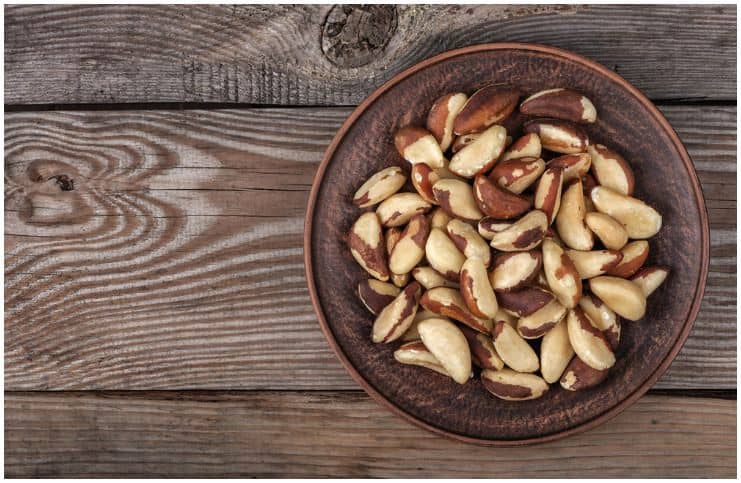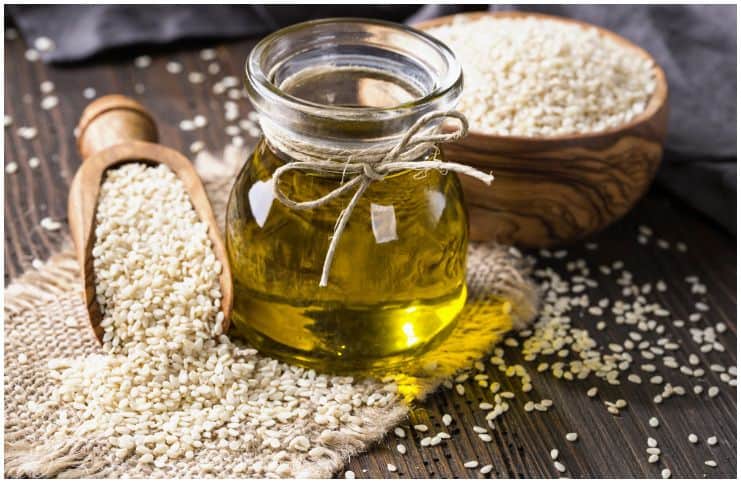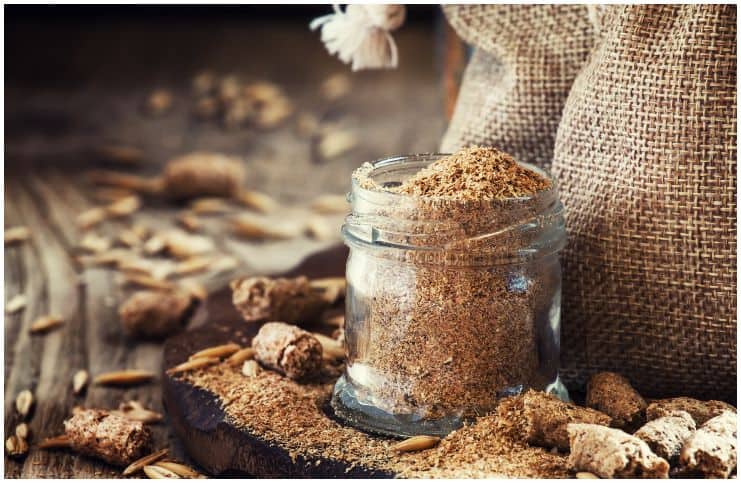Top 11 Foods Highest in Methionine + Side Effects:
Methionine, a sulfur-containing essential amino acid, is important for many bodily functions, including proper nerve function, immune cell production, the formation of healthy collagen used to form nails, skin, and connective tissue, and helps reduce the level of inflammatory histamines (organic nitrogenous compounds) in the body.
Moreover, this amino acid has antioxidant properties and can protect the body from toxic compounds and free radicals.
Excessive intake of methionine side effects
While the human body needs this essential amino acid in order to function properly, consuming too much can be dangerous to your health. Overconsumption of methionine is very common in the standard American diet, but not on a vegan diet.
A diet that is low in methionine may extend lifespan and reduce the risk of cancer. Fresh tumors taken from individuals show that many cancers appear to have a biochemical defect that makes them dependent on this amino acid, including some tumors of the breast, colon, prostate, ovary, and skin.
Other possible adverse effects of methionine may include nausea, drowsiness, vomiting, and increased blood levels of homocysteine (a homolog of the amino acid cysteine), which may raise the risk of cardiovascular problems.
Since this amino acid is found mainly in food, a good strategy may be to lower methionine levels by lowering methionine consumption, completely eliminating high methionine foods to control cancer growth as well as improve our lifespan.
Here is a list of the top 11 foods highest in methionine:
#1 Brazil nuts (1100 mg/100g)
Also known as cream and Para nuts, these nuts are an important source of non-animal-based protein and are rich in selenium. A 1-ounce serving of Brazil nuts has 186 calories and 19 grams of total fat per serving.
Also, Brazil nuts have been found to contain high amounts of aflatoxins (mycotoxins), which are carcinogenic, therefore, the European Union has placed strict restrictions on the import of Brazil nuts.
#2 Fish, halibut, cooked, with skin (Alaska Native) (1000 mg/100g)
100 grams of fish, halibut, cooked, with skin containing no carbohydrates, is fiber-free, 86 milligrams of sodium, 22.13 grams of protein, and 72.82 grams of water. In addition, fish can contain environmental contaminants they pick up from the water or sediments they live in or the food they eat.
#3 Sesame seeds (700 mg/100g)
Sesame seeds may be the oldest condiment known to man. They help lower bad (LDL) cholesterol levels because these seeds contain phytosterols that block cholesterol production.
Black sesame seeds are particularly high in phytosterols. Also, sesame seeds are especially high in manganese, copper, calcium, and magnesium.
#4 Raw salmon (626 mg/100g)
Studies usually praise salmon’s health benefits. But that’s just because salmon is a little healthier than other animal-based foods, like red meat.
Nevertheless, when research compares salmon to truly healthy foods, like plant-based protein, which has no LDL, salmon comes up as short as a ship’s flag at half-mast.
#5 Cheese (600 mg/100g)
Cheese is a fermented food made from milk, commonly garnered from goats, cows, or sheep.
A study looked at diets high in animal proteins, including cheese, and found that consuming a diet rich in cheese and meat during middle age can double the risk of death, and quadruple the risk of death by cancer.
#6 Beef (554 mg/100g)
Consuming beef products, which are loaded with saturated fat and artery-clogging cholesterol, is a perfect way to increase both your waistline and your chances of developing impotence and diseases such as diabetes, heart disease, arthritis, Alzheimer’s disease, osteoporosis, and asthma.
#7 Chicken breast fillet (552 mg/100g)
Conventionally raised chickens are usually treated with antibiotics in order to combat the effects of crowded living conditions and to make them grow faster. Chicken breast contains about 2.3 g of saturated fat, 0.091 g of trans fat, and 56 mg of cholesterol.
Saturated fat and trans fat can increase your blood cholesterol levels and raise your risk of cardiovascular disease, while excess amounts of cholesterol can result in arterial plaque build-up.
#8 Dried soybeans (547 mg/100g)
Soybeans have long been acknowledged as a plant food that, when compared with other plants, is relatively high in protein.
For instance, experimental studies have shown that soy protein isolates tend to lower LDL cholesterol levels, while protein from animal sources can raise cholesterol levels.
#9 Sunflower seed butter (500mg/100g)
Made from sunflower seed kernels, this butter is sold mostly in health food stores or other health-oriented venues.
Additionally, the water-soluble B-complex vitamins and vitamin C, along with fat-soluble vitamins A, D, and E are all found in sunflower seeds along with vitamin K.
#10 Egg, whole, cooked, hard-boiled (400 mg/100g)
Consuming eggs on a daily basis adds an excessive amount of bad cholesterol to your diet. Furthermore, eating eggs measurably increases the risk of developing type 2 diabetes.
For instance, a study established that eating 3 to 5 eggs per week doubled the chances of becoming diabetic, and those eating 5 or more eggs per week had 3 times the risk of this deadly disease.
#11 Oats (200mg/100g)
Oats are among the healthiest grains on Earth. The U.S. Food and Drug Administration claims that oats, as part of an overall heart-healthy diet, could lower the risk of heart disease.
Two studies out of Scandinavia concluded that adding oats to a gluten-free diet may improve the nutritional values of the diets, especially for minerals and vitamins, as well as increasing antioxidant levels.
Foods low in methionine
Eating foods low in methionine, such as fruits, green leafy vegetables, grains, and beans, is the best choice. This diet helped to extend lifespan in rodent test subjects, according to a study published in a 2009 issue of “Medical Hypotheses.”
READ THIS NEXT:
Vitamin D Supplement Side Effects
Foods to Avoid on a Tyramine Restricted Diet
References https://www.ncbi.nlm.nih.gov/pubmed/4524624 https://www.ncbi.nlm.nih.gov/pubmed/12416254 https://www.ncbi.nlm.nih.gov/pubmed/18789600 http://www.sciencedirect.com/science/article/pii/S1751499109000791 https://www.sciencedaily.com/releases/2014/03/140304125639.htm http://www.nature.com/ejcn/journal/v64/n1/full/ejcn2009113a.html



